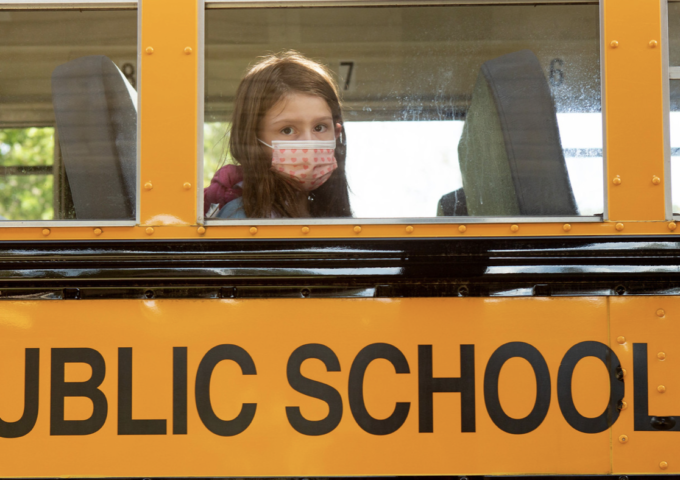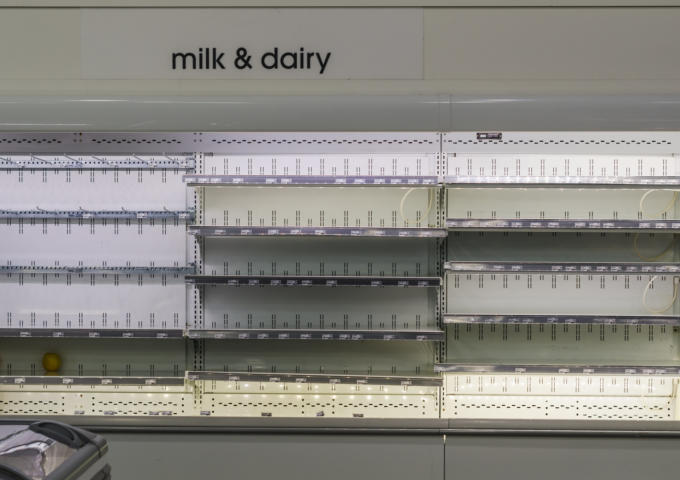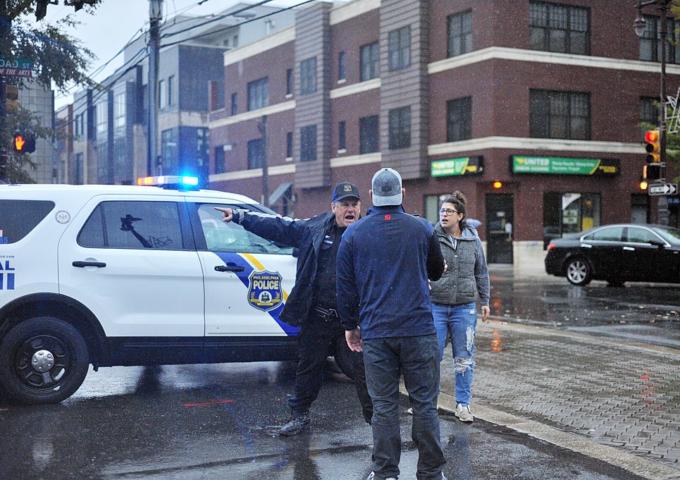The Shout Out:
“This week I hear him literally say that I don’t think we should legalize marijuana – I thought you might have been high when you said it.”
— New Jersey Sen. Cory Booker to former Vice President Joe Biden during last week’s debate for Democratic presidential hopefuls.
Your turn: Are you Team Cory or Team Joe? Should marijuana be legalized? Send your thoughts to voices@philadelphiaweekly.com or send us your message on social media using #PWvoices.
Black and blue on both sides
Dear Editor,
I read your letter from last week. While I appreciate the [Nov. 14] column you wrote recognizing that DHS has a tough job to do, I do think you were a bit too critical. As a former caseworker, I can’t even begin to tell you the situations I walked into and felt disgusted knowing that a child, and oftentimes children were subjected to. Parents who abuse hard drugs and have OD’d in front of their children, kids who have taken beatings so viciously at the hands of parents their skin is a different color, kids with special needs who were abused physically, sexually.
I’ve handled those cases. I’ve seen the fear in a child’s eye from being in these living conditions. I know you’ll never hear about these cases publicly from DHS, but go through court records, which are public documents, and see the horror some of these kids from Philadelphia live in and are subjected to. Then think about what you wrote and perhaps realize that this saga goes both ways.— Karen S. | Mayfair

Falling on deaf ears
Dear Editor:
My name is Kyle Brothers and I am a native of Philadelphia. The reason I’m writing to you all today is because as all of you may be aware in Philadelphia right now there is a consistent flow of shootings and murders, even including the murdering of children, with that I believe we in Philadelphia have a major problem.
A few weeks ago after witnessing an extremely disturbing beating of a gentleman on a SEPTA train by three young guys, I decided enough was enough and something needed to be done. So in an effort to join collaborative forces with the City Of Philadelphia and Acting Philadelphia Police Commissioner Christine Coulter, I began sending Mayor Kenney and Christine Coulter emails requesting to have a meeting with myself to discuss some possible solutions to all the crime in our city.
Essentially I was going to go and talk to the community and community leaders about some things they have going on in their neighborhoods that they would like to see changed and then meet with the Mayor and Police Commissioner and outline the community’s concerns as well as receive feedback from the Mayor and Police Commissioner regarding things we as community residents could do more to assist them and then promote these changes within these communities. Well, as of today, I’ve sent five emails requesting these meetings and no response at all from either Mayor Kenney, the City Of Philadelphia or Commissioner Coulter.
Recently, I sat down with a few Philadelphia community leaders from different sections of Philadelphia to discuss why the City is not responding to our repeated attempts to meet. The first immediate response I received was that the Mayor and the City Of Philadelphia do not care about the crime that’s going on in these areas of Philadelphia, their main concern is to contain the crime away from Center City Philadelphia and away from tourists who bring money to the city. I truly hope this is not the case because, if so, we have another monstrous problem on our hands.
But the City not responding to the request of finding solutions raises the question of “why.” For a government that constantly and consistently goes out to the public and act as if they want to see things change for the better here in Philadelphia, why wouldn’t they answer when 10 and 2 year olds are being murdered each day? In no way am I saying that our problems are all the city of Philadelphia’s fault, however I am saying that all communities and the city have to work together to fix these issues, and if the city is not willing to take the necessary first step to resolving this crisis, where does that leave the residents in these “bad” neighborhoods?
I’m asking the media to help us get through to the Mayor and this city to try and change the horrible epidemic here and start working toward a solution. We as residents should never feel like we are not being heard. Please help our residents of Philadelphia, we cannot afford to lose one more person, let alone one more child, to this violence.
Kyle Brothers | Philadelphia
Pick country over party
Dear Editor:
The sheer amount of criminal evidence unearthed by the impeachment inquiry into Donald Trump marks an unprecedented moment in American history. It’s time for Republican lawmakers to join Democrats in supporting drafting articles of impeachment.
GOP reps want to be remembered for upholding justice, the rule of law, and protecting our democracy – but that’s not possible while they’re helping protect the criminal in the White House. Is this the side of history they want to be standing on?
Sworn depositions from the impeachment inquiry have affirmed over and over again that Trump is willing to betray our country for his own personal and political gain. Not only is this a clear and open threat to the integrity of our elections – it’s an impeachable offense. No one is above the law in this country, including and especially the President of the United States.
It’s time for GOP reps to choose country over party and support Trump’s impeachment.
Jean Wiant | Glenolden
Government turns its back on those in need
To the Editor:
“Give me your tired, your poor, Your huddled masses yearning to breathe free.”
Since 1903, Emma Lazarus’s uplifting prose has remained inscribed on the Statue of Liberty’s bronze pedestal. Time has made her words iconic; they are reminiscent of an era when immigrants approaching the United States could gaze at Ellis Island and envision a better life. Juxtaposed with the violence and inhumanity rampant at the United States border today, the differences between then and now are jarring. With such powerful words etched on an emblematic symbol of immigration, how can the United States live with turning our collective back on the tired, the poor that we once welcomed?
The Trump administration has consistently attempted to curtail immigration into the United States through a series of restrictive measures, most of which target low-income communities of color. On Aug. 14, this tendency manifested in the form of a new rule published by the Department of Homeland Security in the Federal Register.
Dubbed “Inadmissibility on Public Charge Grounds” and known colloquially as the “public charge rule,” this change broadened the criteria under which an immigrant qualifies as a public charge and will consequently make it more difficult for immigrants receiving public benefits to achieve permanent residence. The Trump administration’s public charge rule and similar mechanisms of restriction are classist attempts to shut out non-wealthy immigrants from the United States.
Though restrictions on immigration have drastically increased under the Trump administration, rules attempting to keep out poor immigrants are not a recent development in United States immigration policy. The Immigration Act of 1882 put forth the notion of the inadmissibility of public charges, and made the pathway to permanent residence almost impossible for those who were labelled as such.
U.S. Citizenship and Immigration Services define a public charge as “An individual who is likely to become primarily dependent on the government for subsistence.” In this state of the public charge rule, immigration officers had determined whether green card applicants and certain categories of visa-seekers were likely to be dependent on the government for financial support by evaluating whether immigrants had used Supplemental Security Income, welfare, or long-term institutionalized care in the past; if so, they had to demonstrate that they would not need to do so in the future.
Though rules of that nature have previously attempted to narrow immigration admissibility through a lens of socioeconomic class, the changes proposed by the Trump administration take the concept to a disturbingly new level by greatly broadening qualifications regarding what constitutes a public charge. As the memo announcing the change states, “This final rule amends DHS regulations by prescribing how DHS will determine whether an alien applying for admission or adjustment of status is inadmissible to the United States, because he or she is likely at any time to become a public charge.” Under this rule, the definition of a “public charge” is expanded significantly.
The use of a wider range of federal benefits, including Medicaid, food stamps, and Section 8 housing vouchers, would qualify immigrants as public charges if the rule were to be implemented.
This broadening of definition has established a climate of increased fear among immigrant populations, as many are wary of using much-needed benefits due to the belief that they could jeopardize their citizenship status. To expand even further, the public charge rule draws on the racist roots of the term itself and leaves immigrants at the mercy of immigration officers who may have biased, racist misconceptions about which populations are likely to be public charges. Stereotypes of people of color being dependent on public benefits are already proving extremely damaging as internalized biases impact the labelling of immigrants. Furthermore, there are misconceptions floating that being labelled a public charge will impact a green card holder’s ability to naturalize. While this is untrue, this false belief is causing green card holders to be afraid to take much-needed public benefits. The public charge rule and the fear surrounding it are effectively restricting the poor, specifically low-income people of color against which the Trump administration actively works from being granted green cards and from accessing public benefits.
The Trump administration’s public charge rule is a despicable attempt to close the United States off to those who are not wealthy, but the persistence of values like Lazarus’ provides faith the goodness and hospitality that America is supposed to exemplify will ultimately prevail.
Abby Kleiman | Media
YOUR TWEETS




